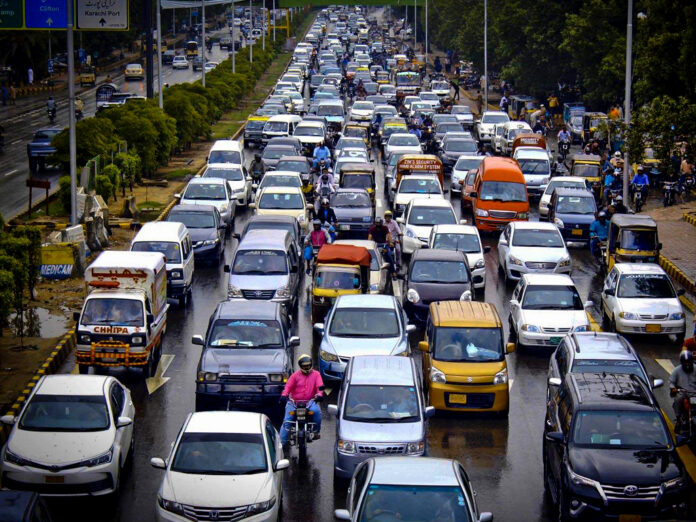In a major overhaul of traffic regulations, the Sindh government has approved a complete ban on four-seater rickshaws and endorsed significant amendments to the Motor Vehicles Rules, aiming to improve road safety and streamline public transport enforcement across the province.
The decision emerged from a high-level meeting chaired by Sindh Law and Home Minister Ziaul Hassan Lanjar. A statement issued by the Sindh Home Department confirmed that the proposed reforms have been finalised and will soon be presented to the Sindh Cabinet for formal approval.
Under the revised rules, only one-by-two-seater rickshaws will be allowed to operate. The move targets improved traffic discipline and aims to phase out illegal and oversized auto-rickshaws that often clog urban roads.
To strengthen compliance and safety, the new regulations will require all commercial and non-commercial vehicles to obtain fitness certification via third-party agencies. In addition, stringent penalties have been outlined for traffic violations:
- Government vehicles violating one-way traffic: Rs 200,000 fine
- Private four-wheelers committing the same offence: Rs 100,000 fine
- Motorcycles driving against traffic: Rs 25,000 fine
- Driving without a valid license: Rs 25,000 for motorcycles, Rs 50,000 for cars
All heavy and commercial vehicles must now be equipped with at least five surveillance cameras, while water tankers and dumpers will be mandated to install GPS trackers and motion sensors for real-time monitoring and enhanced safety.
The reforms also outlaw the sale of black tinted windows, fancy lights, and hooters, both online and in physical markets. To further tighten enforcement, e-challans will be sent directly to the vehicle owners’ registered addresses.
A unified digital system will be introduced to link the traffic, transport, and excise departments for better coordination. Vehicles with outstanding traffic fines will no longer be eligible for sale or ownership transfer.
A dedicated Traffic Magistrate post will also be established to expedite the handling of traffic violation cases. First-time offences such as one-wheeling and car drifting will carry a Rs 100,000 fine, with increased penalties for repeat offenders.
The meeting was attended by the Inspector General of Police Sindh, as well as senior officials from the law, transport, mass transit, and excise departments, alongside the Deputy Inspector General of Traffic for Karachi.
The high-level coordination across departments underlines the provincial government’s commitment to enhancing urban mobility and enforcing road safety standards.
























